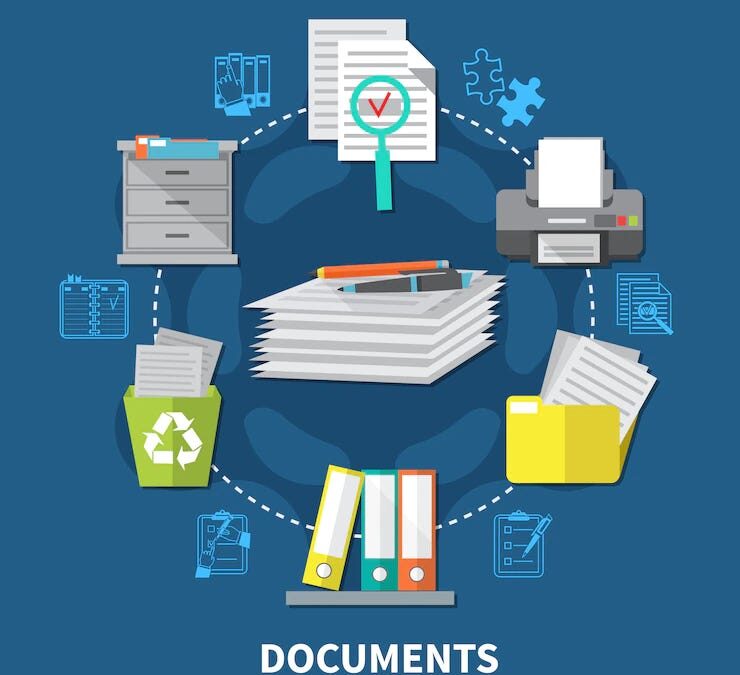During a break in one of our training classes, an attorney proudly showed me his firm’s Aged Accounts Receivable report. “Look at this!” he exclaimed, “Seven pages and we’re up to $1.7 million –isn’t that great!” I smiled politely, but thought to myself, “Get that down to half a page and I’ll be really impressed.”
The cold, hard fact is this: Receivables that are 0 – 30 days have a 90% chance of being collected. Receivables that are 31-60 days have an 80% chance of being collected. Receivables that are 61-90 days have a 45% chance of being collected. Did you note the drop off? And as for receivables over 90 days? Let’s just say that Vegas wouldn’t take those odds.
A business organization cannot operate without money. Therefore, in order for an organization to efficiently operate, it is as important to collect what is owed to you as it is to generate the receivables in the first place.
In a recent report, Dun & Bradstreet listed some tips on how to keep your Accounts Receivable, or “A/R” balances from drifting into the red zone of becoming too old to collect:
· Stay organized and consistent – Every individual or business entity with whom you do business should be the recipient of a contract or agreement. The contract or agreement should state your terms and if you charge interest or late fees under certain conditions. Enforce these policies. Follow up with late invoices in a timely manner to resolve any issues or resend invoices your clients claim have been lost.
· Keep track of your accounts receivable – The products we support – Amicus Attorney Accounting, Billing Matters, PCLaw, Peachtree, QuickBooks and Timeslips – all have an Aged Accounts Receivable Report. Print it out and look at it at least once a month, or per billing cycle, whichever comes first. Many of these programs have an option for that report that can also list: Date of Last Payment, Amount of Last Payment, and the client’s Main Phone Number. Include that information on the report for follow up, if needed.
· Communicate with your clients – Don’t forget to accentuate the positive! State the terms and your collection policies right on your invoice. Let your clients know you appreciate their business and timely payments. Acknowledge partial payments and remind clients of the remaining balance due. Remind clients of the terms under which you are performing services, if needed.
· Exercise caution – If a client returns a contract or agreement with too many edits, treat that as a “red flag” – do you really want to do business with them? If you are going to undertake a large case, matter or project with a significant initial outlay of expenses, you may wish to require a deposit before you begin work.
Many service-based organizations are so intent on billing that they forget about collecting. Receivables = cash for your organization. By monitoring your receivables through your software program, you will be able to spot potential problems and keep the cash flowing to keep your operations going.
The staff of Eastern Legal Systems can show you the reports in your billing software to make this happen! Call us at 1-877-ELS-0555 to discuss how we can help you keep your business in the black.

Dana Riel is President and Founder of Business Solutions, Inc., serving the Washington, D.C. metropolitan area since 1985. Her firm is the authorized training center for the region for Time Matters and PCLaw by PCLaw|Time Matters, PLLC; Timeslips and Sage 50 Accounting by Sage Software; and QuickBooks by Intuit Corporation. She also serves as a consultant for Caret Legal (formerly known as Zola Suite), CosmoLex, Soluno & TimeSolv. As a trainer, Dana has provided training services to organizations such as the DOD Defense Logistics Agency, Judge Advocate General’s Office (JAG)/Department of the Navy, University of the District of Columbia School of Law, U.S. Department of Commerce and the U.S. Department of Veterans Affairs, as well as with small‐ to mid‐size law firms in the Baltimore‐Washington D.C. area. In 2009, she participated in the series of day‐long seminars sponsored by the District of Columbia Bar Association Practice Management Section, titled “Basic Training: Learn About Running a Law Office”. Ms. Riel also served as an Adjunct Professor in Georgetown University’s Paralegal Studies Program, having taught the course, “Legal Ethics/Legal Technology” in 2009; and “Legal Technology” for the Spring and Summer Semesters of 2010. She presently serves on the Advisory Board for PCLaw|Time Matters, PLLC.



